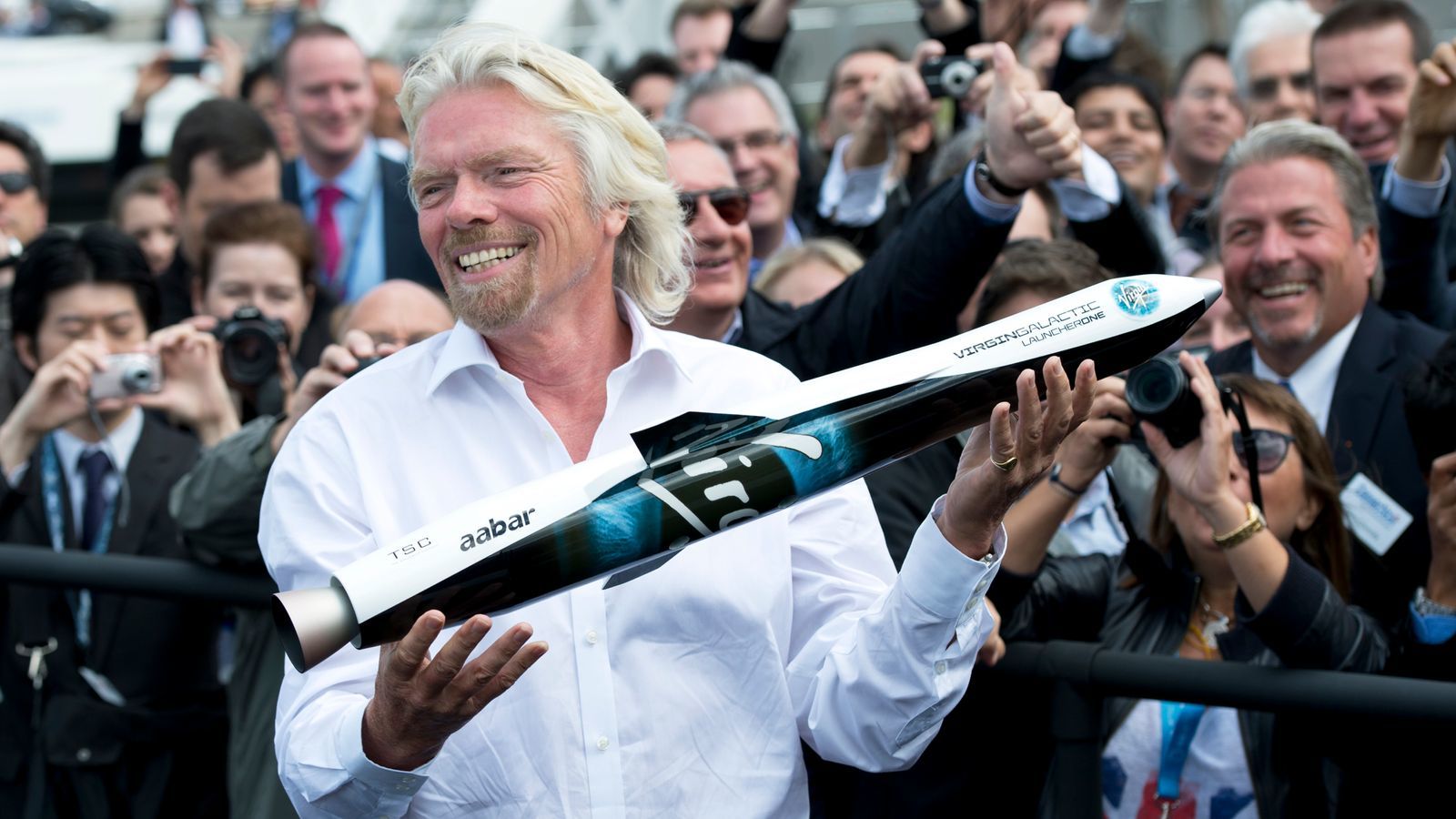
Virgin Orbit sacks 85% of workforce and ceases operations 'for foreseeable future'
Sir Richard Branson's Virgin Orbit has said it is laying off 85% of its staff and will cease operations for the foreseeable future.
The satellite launch company, which is 75%-owned by the British billionaire's Virgin Group, was unable to secure new funding from investors.
Back in January, the company failed to complete the first-ever satellite launch from UK soil.
 Virgin Orbit is 75%-owned by Sir Richard Branson's Virgin Group.
Virgin Orbit is 75%-owned by Sir Richard Branson's Virgin Group.
Sir Richard's investment firm, Virgin Investments, is injecting $10.9m (£8.8m) into the company "to fund severance and other costs related to the workforce reduction".
Virgin Orbit chief executive Dan Hart told employees during a Thursday afternoon meeting that the company would be ceasing operations "for the foreseeable future".
Following news of the layoffs, shares in the company plummeted by 38% in after-hours trading in New York.
The staffing cuts will impact around 675 employees across "all areas of the company", Virgin Orbit said in a regulatory filing, adding that other total costs are expected to reach just over $15m (£12.1m).
It was reported last week that Texas-based Matthew Brown had been in talks to invest $200m (£161m) in the company, but those talks collapsed last week, according to Reuters.
A report in the Financial Times also suggested Virgin Orbit's chief executive Dan Hart is hoping to seal a last-minute investment to stop the firm from collapsing.
The company furloughed nearly all of its 750 employees earlier this month in what Mr Hart described as an "operational pause" while Virgin Orbit sought a financial lifeline.
A small group of employees returned to work on 23 March to focus on rocket engine work, an email to staff said at the time.
Virgin Orbit was founded in 2017 and had been valued at $3.2bn when it went public in 2021 through a "blank cheque deal", but its failed satellite launch represented a major blow to the business.
The mission was the first-ever satellite launch from UK soil, and it was heralded as a major milestone for British space exploration, but it ended in disappointment after the rocket failed to deploy its payload of nine satellites.
The first stage of the mission went according to plan, with a converted Boeing 747 named Cosmic Girl flying 35,000ft over the Atlantic Ocean off Ireland's southern coast.
It then deployed the 21-metre rocket, named LauncherOne, that contained the small satellites which would have been the first launched into orbit from western Europe.
But organisers identified an "anomaly" leading to a "premature shutdown" and the rocket fell back to Earth, landing in the Atlantic Ocean.










